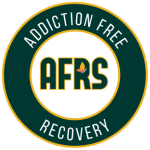Mixing pain pills with alcohol is a dangerous combination that many people underestimate. While both substances are commonly used, pain pills for managing chronic or post-surgical pain, and alcohol in social or recreational settings, combining them can lead to serious health risks, including slowed breathing, liver damage, and even overdose.
According to the CDC, nearly 29% of opioid overdose deaths involve alcohol, making it clear just how harmful this mix can be. Whether you’re wondering “is it safe to take pills with alcoholic drinks?” or trying to understand better which medicine is dangerous with alcohol, this article will guide you through the risks, the science behind the interactions, and safer alternatives. If you or someone you know is on pain medication and alcohol is involved, especially drugs like oxycodone and alcohol, it’s important to know the facts and protect your health.
How Pain Medications Work in the Body
Pain medications designed for pain management, such as opioids and over-the-counter drugs, prevent pain signals from reaching the brain. Pain medications like oxycodone work by attaching to receptors in the brain and spinal cord to block pain signals and reduce discomfort.
These pain medications successfully reduce pain, yet they modify functions of your central nervous system. Medical professionals consider this condition dangerous when patients combine their pain medication with alcohol. The combined effect of alcohol and pain medications creates dangerous reductions in breathing and heart activity by slowing down brain functions.
Different people wonder which medication combination with alcohol poses the greatest danger to health. Blood pressure medications and alcohol are dangerous substances, with oxycodone combined with alcohol belonging to a group of hazardous medications among painkillers. Drinking alcohol with multiple medications produces severe effects of dangerous sedation and dizziness that could potentially be fatal. Learning to understand pain medication mechanics forms the basis for proper usage and safe mix avoidance.
What Happens When Alcohol Enters the Mix
Some individuals believe the combination of pain pills with alcohol creates no harm when taking just one drink, but research proves otherwise. The mixture of pain pills and alcohol has fatal potential during actual usage. Alcohol use, opioids, and sedatives enhance the pharmacological power of prescribed medications at the same time as other drugs. The combined action of these substances increases both respiratory depression and overdose risk while harming the liver.

Slowed Breathing, Sedation, and Overdose Risk
Using oxycodone and alcohol results in severe processing slowdown of the nervous system. The following table compares the combined impacts through a simple presentation.
| Effect | Pain Pills Alone | Pain Pills With Alcohol |
| Breathing | May slightly reduce breathing | Breathing can slow to dangerous or fatal levels |
| Sedation | Drowsiness and relaxation | Extreme sedation, unconsciousness |
| Overdose Risk | Present, especially with high doses | Much higher, even with lower doses |
| Cognitive Function | Slower thinking and reaction times | Severe confusion, poor coordination |
| Emergency Risk | Can be managed with proper dosage | Emergency help is often needed, risk of coma or death |
Impact on Liver Function and Metabolism
Using alcohol and pain medications simultaneously elevates stress on your liver. The simultaneous use of alcohol and pain medication exceeds the liver’s ability to break down toxins in the body. The combination of alcohol and pain medication exceeds liver processing capabilities, thus causing liver damage or failure. Here’s how:
- The alteration of liver functions from alcohol consumption promotes the buildup of pain medication in bodily tissues.
- The toxic substances manufactured by the liver during this substance combination will increase the adverse side effects of treatment.
- Frequent alcohol consumption makes medication use for both liver inflammation and disease formation riskier.
- Slow opioid processing in the body occurs due to this change and might lead to dangerous overdose incidents.
- The combination of chronic pain medication intake with alcohol leads to long-term liver injuries that become irreversible.
Common Pain Medications That Should Never Be Mixed with Alcohol
Patients must avoid all combinations of pain pills with alcohol, regardless of medication type, because specific pain medications present dangerous conditions when interacting with alcohol. The list below can also help you know which medicines should be avoided:
Opioids (Like Oxycodone, Hydrocodone, Morphine)
| Medication Name | Why It’s Dangerous With Alcohol |
| Oxycodone | Increases the risk of sedation, respiratory failure, and overdose. |
| Hydrocodone | High risk of liver damage (especially with acetaminophen) and CNS depression. |
| Morphine | Amplifies sedation, slows breathing, and the overdose risk skyrockets. |
Non-Opioid Prescription Painkillers
| Medication Name | Why It’s Dangerous With Alcohol |
| Tramadol | People who take this drug have increased chances of experiencing seizures, extreme drowsiness, and coordination issues. |
| Acetaminophen (e.g., Tylenol) | The combination of long-term alcohol consumption and use can damage liver tissue to a critical extent. |
Muscle Relaxers and Sedative Pain Meds
| Medication Name | Why It’s Dangerous With Alcohol |
| Carisoprodol (Soma) | Extreme sedation, risk of blackouts, and coma. |
| Cyclobenzaprine (Flexeril) | Increases dizziness, confusion, and motor skill problems. |
| Benzodiazepines (sometimes prescribed for pain-related anxiety) | Using oxycodone with alcohol increases the risk of severe respiratory problems and potential overdose incidents. |
Oxycodone and Alcohol: A Particularly Dangerous Duo
When oxycodone combines with alcohol, it leads to hazardous consequences that put human life in serious danger. Oxycodone, as a powerful opioid painkiller, controls pain by acting on the brain and nervous system. When used with alcohol, the depressant substance alcohol additionally slows down brain activity and breathing function. The body’s response system becomes much more dangerous because the combined effects of the two substances exponentially increase their impact instead of merely accumulating with each other.
Any ingestion of oxycodone and alcohol together will result in severe sleepiness and dangerous respiratory slowness, which could lead to loss of consciousness and potentially fatal outcomes. People run a heightened risk of overdose when combining acute drug consumption with a lack of awareness about their actual amount taken. The combined use of these substances intensifies cognitive disorders and leads to dangerous choices that harm both the liver and brain structurally.
Any person taking opioid medication must avoid alcohol consumption entirely according to medical professional recommendations. If you’re wondering if it is safe to take pills with alcoholic drinks, the clear answer is no, especially with something as potent as oxycodone.
How Long Should You Wait to Drink After Taking Pain Meds?
Your decision to drink alcohol following pain medication intake depends on both the medication type and dosage, together with your medical state. Patients should remain free from medication before consuming alcohol when they use short-acting pain relievers such as ibuprofen or acetaminophen for at least 8 to 12 hours.
Using alcohol should be prohibited completely while under treatment with oxycodone or hydrocodone prescription opioids, and the period following your last dose should extend to 24–72 hours. Even minimal overlap between alcohol and opioid usage presents a high risk factor for respiratory distress complications and liver injuries. Always respect your doctor’s advice regarding alcohol consumption and decide to abstain from drinking if there is any uncertainty.

Is Any Amount of Alcohol Safe While on Pain Medication?
Many people do not recognize the dangerous combination of alcohol with pain medication as a wholly significant health problem. A single drink could appear uneventful, but medicines react badly when mixed with alcohol at any amount. Your medicine may lose effectiveness and expose you to dangerous consequences, while its side effects can become stronger when you consume alcohol with it.
These are essential points to bear in mind when consuming alcohol with pain medication:
- Small amounts of alcohol present health risks to patients who consume particular pain medications.
- Every drug requires a different risk level since drug-dependent safety amounts remain unknown.
- Using alcohol together with opioids or NSAIDs produces serious medical complications.
- The intake of alcohol and medications such as acetaminophen or ibuprofen results in higher probabilities of liver damage and ulcers occurring.
- Editions to this list are intended only for prescription and nonprescription drugs. Check your medication label or consult a medical expert for a doctor’s approval before consuming alcohol.
- It is always best to abstain from alcohol consumption when receiving pain medication treatment.
Facing a Dangerous Mix? Addiction Free Recovery Is Here to Help
Many people face the challenge of combining pain medications with alcohol, but you don’t have to face this battle alone at Addiction Free Recovery. The dangerous effects of combining pain pills and alcohol are well understood at our facility and you can count on our team to provide expert guidance while developing personalized care plans and continuous 24/7 support during your recovery.
Reach out to Addiction Free Recovery today because waiting for the problem to worsen will put your safety at risk as you step forward to secure a safer, healthier tomorrow.
FAQs
Why is mixing pain pills with alcohol dangerous?
The combination of pain pills with alcohol produces dangerous respiratory effects and deepens sleepiness, which significantly increases the chance of overdose. Consuming pain medication with alcohol substantially increases the risk of damaging the liver, and this usually happens with the use of acetaminophen.
What happens if you take oxycodone with alcohol?
Combining oxycodone and alcohol can be life-threatening. It significantly increases the chances of respiratory depression, unconsciousness, and fatal overdose.
Can you drink alcohol while on pain medication?
Consuming alcohol with pain medication is considered unsafe for most patients. Minimal alcohol intake will interfere with the medical effectiveness and produce additional side effects.
What pain meds should never be mixed with alcohol?
The medicines that should never be mixed with alcohol are as follows:
- Oxycodone
- Hydrocodone
- Acetaminophen
- Ibuprofen
- Naproxen
These medicines, when mixed with alcohol, result in high risks of liver damage, stomach bleeding, and slowed breathing.
How long should you wait after taking pain meds to drink?
The period for drug elimination depends on which medication you receive. How long specific drugs need to completely leave your body varies. Consult your doctor or pharmacist for information about drinking alcohol.


























